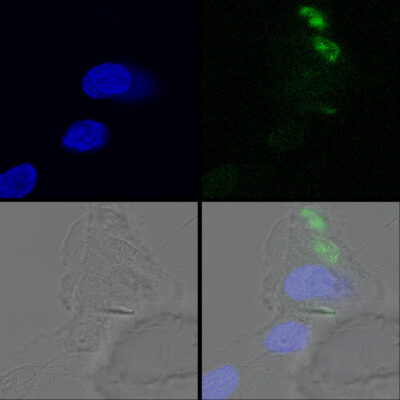
Optimization of extracellular vesicle-based therapeutics for liver (HALIFIB project)
Abstract
The HALIFIB (Hyaluronic Acid-based delivery of extracellular vesicles for LIver FIBrosis) project begins in November 2022, aiming to develop treatments for non-alcoholic steatohepatitis (NASH). based on extracellular vesicles. NASH is an aggressive form of non-alcoholic fatty liver disease (NAFLD), marked by hepatic steatosis, chronic liver inflammation, and the onset of fibrosis. Indeed, the current anti-fibrotic drugs do not effectively inhibit fibrosis progression.
STRATEGY
Due to the rapid clearance of EVs when administered in vivo, we are working on delivery strategies to prolong their retention in the target liver. This includes: 1) coating EVs with hyaluronic acid to improve their targeting ability: 2) developing in situ-forming injectable hydrogels as a “depot” to sustain EV delivery, also reducing the need for frequent administrations.
IMPACT
Fibrosis progression can lead to cirrhosis and hepatocellular carcinoma (HCC), necessitating liver transplant as the sole effective treatment. However, organ shortage generates demand for treatments that can inhibit fibrosis progression. Unfortunately, the available anti-fibrotic drugs have adverse effects and/or low efficacy. Consequently, none have received EMA or FDA approval. Furthermore, these drugs target a single pathway, which increases the likelihood of being ineffective. In contrast, EVs hold potential as multi-target, low-adverse-effect anti-fibrotic therapy.
Pipeline
-
CLINICAL
NEED -
DISEASES
ANALYSIS - DISCOVERY
-
PRECLINICAL
VALIDATION -
PRECLINICAL
DEVELOPMENT -
CLINICAL
STUDIES
Principal Investigator
Contact
Therapeutic area
Product
Advanced Therapy Medicinal Products (ATMP)/Biological drugs
Collaborations
- Centro Nazionale per lo Sviluppo di Terapia Genica e Farmaci con Tecnologia a RNA (Università di Padova)
- Istituto Mediterraneo per i Trapianti e Terapie ad Alta Specializzazione (IRCCS ISMETT), Palermo
- Lab. di Polimeri Biocompatibili, Dipartimento STEBICEB (Università degli Studi di Palermo)
- Fondazione IRET, Tecnopolo di Bologna (Università di Bologna)
- La Maddalena Cancer Center, Palermo
- Dipartimento di Scienze Mediche (Università di Torino)
Scarica il pdf del progetto

